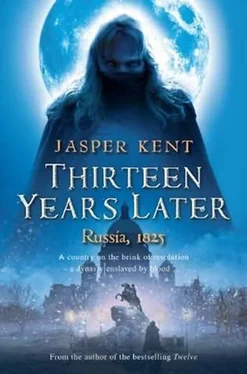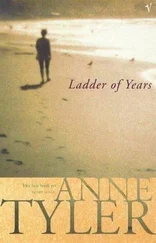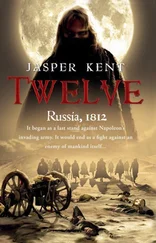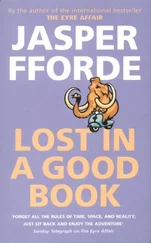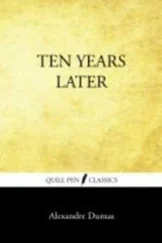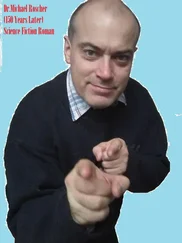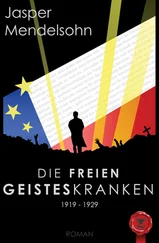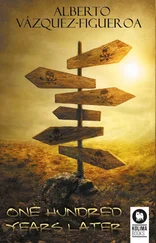Aleksei turned back and scanned the crowd. He still saw no sign of Dmitry and – as the numbers swelled – had little hope of finding him. Then he noticed movement around the statue of Pyotr. A figure was climbing up on to the Thunder Stone, preparing to address the rebels. It was Ryleev. Aleksei ran over to listen.
Dmitry looked up into the sky. The face of Kondraty Fyodorovich Ryleev looked down on him and the whole crowd. Behind him, Pyotr’s bronze horse reared into the air. Dmitry felt elated. Ryleev had been a hero to many at the Cadet Corps College, and though there had never been any official path of recruitment, a number of the youngest members of the Northern Society – those, like Dmitry, who had never seen battle – had joined on the basis of his reputation. In all there were at least three thousand here, he’d heard, with more on the way. Those soldiers who remained loyal to Nikolai – fooled into thinking he was truly tsar – would never fire on their comrades. Nikolai would have to relinquish power and let Troubetzkoy take over, if only Troubetzkoy would arrive soon. Perhaps they had already arrested him. Then Ryleev would have to lead. Maybe that wasn’t such a good idea.
Dmitry had arrived at Ryleev’s house the previous night, to be told that he had missed his father by less than an hour. It was a disappointment, but he knew Aleksei would appreciate that forthcoming events would take precedence over kinship, at least for the day. He had stayed at the house, and in the morning all had been in chaos.
First, Bestuzhev had arrived with news that Kakhovsky had promised to assassinate Nikolai at the first opportunity. Ryleev paused at the news, and then said, ‘Remember the garde perdue. He must not be linked to us.’
‘He knows,’ Bestuzhev had replied.
The conversation had taken place as a shouted exchange through Ryleev’s bedroom door as he prepared himself. When he finally emerged, Dmitry was shocked at what he saw – too shocked even to laugh. He was not alone in his emotions. Ryleev himself described what he was wearing – and the motivation behind it – far better than Dmitry ever could have.
‘I’m dressed as a peasant, you see,’ he explained, indicating his rough clothes and knapsack. ‘But’ – the word was long and drawn out – ‘I’m also carrying a rifle – like a soldier. That’s what today is all about; the union between the soldier and the peasant – the first act of their mutual liberty.’
Dmitry would have observed that Ryleev was neither a soldier nor a peasant, but he bit his tongue. Bestuzhev had been more outspoken.
‘There are only soldiers with us today – no peasants,’ he said. ‘They won’t understand any of this sort of patriotic symbolism. All they believe is that Nikolai should not be tsar.’
Ryleev had eventually agreed and had gone again to change, with the words, ‘Perhaps I was being a little too romantic.’ Bestuzhev left the house to search the city’s barracks for more support. Ryleev had dressed once more and was about to leave when his wife rushed out to him and grabbed his arm.
‘Don’t stir from the house today,’ she begged.
‘Don’t be silly,’ he had replied.
‘You will die,’ she shouted.
Ryleev had pulled himself away from her, and she shouted up the stairs, ‘Nastenka! Nastenka! Beg your father to stay.’
A little girl had appeared – Ryleev’s six-year-old daughter – seeming as upset by her mother’s shouting as by her father’s departure. In the end, she had to be dragged away from her father’s legs, to which she had clung desperately. His wife had swooned on the couch. Ryleev left hurriedly, accompanied by Dmitry and several others. It was a terrible way for a man to part from his family on a day that carried such risk, but if he had stayed, he might never have got away. Again, there were times when the affairs of the nation had to be placed above those of the family.
They had arrived at Senate Square to the news that Troubetzkoy had not arrived and that the senate had already sworn allegiance to Nikolai. Ryleev decided that he must speak. They had helped him up on to the plinth that supported the statue of Pyotr, and he had addressed those that could hear him.
‘Let them read Aleksandr’s will,’ he shouted. ‘They’ve got the parchment sealed there in the senate.’ He pointed over to the building. ‘That will tell us whom His late Majesty wanted to succeed him.’
There were cheers in the crowd. Dmitry had never felt more convinced of their victory. He stood and listened to Ryleev’s words and to the roars of the crowd. When the speech had finished, a familiar chant rose up.
‘Konstantin ee Konstitutsiya! Konstantin ee Konstitutsiya!’
After that, Ryleev climbed down and Dmitry lost sight of him. Then came disappointment. Dmitry overheard a conversation between Obolensky and Bestuzhev.
‘Troubetzkoy’s not coming!’ snarled Obolensky.
‘What?’
‘The man’s turned chicken.’
‘He’ll be here,’ insisted Bestuzhev.
‘He’s already been here. He didn’t like the look of what was going on, so he nipped along to the office of the chief of staff and asked where he was supposed to go to swear allegiance to Nikolai. You know where he is now?’
Bestuzhev shook his head.
‘Hiding in the Austrian embassy.’
For the first time, Dmitry felt doubt. What kind of men were they led by? Ryleev made no claim to be a commander, but the farces of that morning proved that his poetical head was irredeemably in the clouds. Troubetzkoy had been a brave soldier – not least at Borodino – but that had been years before. Here they were – thousands of brave men with hope of a new future for Russia – brought to the square like sheep and then abandoned. Just a little leadership could make all the difference, but there was nowhere for it to come from.
Obolensky and Bestuzhev began to bicker about who should take charge – each trying to pin responsibility on the other. Bestuzhev insisted that he only had naval experience, which would be no use here; Obolensky argued that he was no leader of men. But Dmitry had stopped listening. He had seen someone through the crowd, approaching him.
It was his father.
Aleksei rushed through the crowd and embraced his son.
‘Thank God I found you,’ he said. Then he saw Dmitry’s face. ‘What is it?’
‘It’s falling apart, Papa. There’s no one to lead us.’
‘What about Troubetzkoy?’
‘Troubetzkoy made a run for it,’ said Dmitry, ‘and none of the others has the wit to take charge.’
Despite himself, Aleksei felt some of Dmitry’s disappointment. There was a dignity to the rebels, or to many of them – those involved at Dmitry’s level, chiefly. The ordinary soldiers here knew nothing. They had been deceived into thinking they were here to support Konstantin, when in reality Konstantin wanted no support. The men at the top were a mixture of politicians and dreamers – the former in the south and the latter in the north, to make a broad generalization. It was men like Dmitry who truly wanted a better Russia, and might have created one, given the opportunity.
‘You could lead us,’ said Dmitry suddenly.
Aleksei gave a curt laugh and then saw his son was in earnest. ‘Me?’ He laughed again. ‘I’m a colonel. I have no nobility in my blood, and no ability to make pretty speeches. More than that, it’s my profound belief that this day is beyond salvation. If I were to lead them anywhere, it would be back to their barracks.’ Aleksei did not have to lie for any of it. He had no need to admit to his son that he wanted the uprising to fail, because he could see now with certainty that it would fail.
Dmitry looked at him with a gaze of utter disappointment. He shook his head slowly and turned away, saying, ‘I never took you for a coward, Papa.’
Читать дальше
